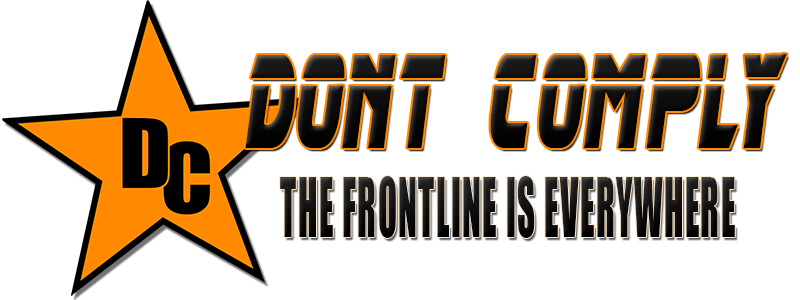A contractor at the National Security Agency who leaked details of top-secret U.S. surveillance programs dropped out of sight in Hong Kong on Monday ahead of a likely push by the U.S. government to have him sent back to the United States to face charges.
Edward Snowden, 29, who provided the information for published reports last week that revealed the NSA’s broad monitoring of phone call and Internet data from large companies such as Google and Facebook, checked out of his Hong Kong hotel hours after going public in a video released on Sunday by Britain’s Guardian newspaper.
The disclosures by Snowden have sent shockwaves across Washington, where several lawmakers called on Monday for the extradition and prosecution of the ex-CIA employee who was behind one of the most significant security leaks in U.S. history.
There were some signs, however, that Snowden’s stance against government surveillance and his defense of personal privacy was resonating with at least some Americans.
Supporters flocked to Snowden’s aid on the Internet – more than 25,000 people signed an online petition urging Obama to pardon Snowden even before he has been charged. A separate effort on Facebook to raise funds for Snowden’s legal defense netted nearly $8,000 in just a few hours.
In Hong Kong, officials were cautious in discussing a spy drama that could entangle U.S.-China relations just a few days after U.S. President Barack Obama and Chinese President Xi Jinping met at a summit in California where cyber security was a prime topic.
Snowden told the Guardian that he went to Hong Kong in hopes it would be a place where he might be able to resist U.S. prosecution attempts, although the former British colony has an extradition treaty with the United States.
On Monday, some local officials suggested that Snowden might have miscalculated.
“We do have bilateral agreements with the U.S. and we are duty-bound to comply with these agreements. Hong Kong is not a legal vacuum, as Mr. Snowden might have thought,” said Regina Ip, a Hong Kong lawmaker and former security secretary.
Snowden said he turned over the documents to The Washington Post and the Guardian in order to expose the NSA’s vast surveillance of phone and Internet data.
The former technical assistant at the CIA, who had been working at the NSA as an employee of contractor Booz Allen Hamilton, said he became disenchanted with Obama for continuing the surveillance policies of George W. Bush, Obama’s predecessor.
“I don’t want to live in a society that does these sort of things … I do not want to live in a world where everything I do and say is recorded,” Snowden told the Guardian, which published the video interview with him, dated June 6, on its website.
In Washington, several members of Congress and intelligence officials showed little sympathy for Snowden’s argument. The U.S. Justice Department already is in the initial stages of a criminal investigation.
“Anyone responsible for leaking classified information should be punished to the fullest extent of the law,” said Republican Mike Rogers, chairman of the House of Representatives Intelligence Committee.
‘A SACRED TRUST’
James Clapper, the director of national intelligence, told NBC that the leaks “violate a sacred trust for this country. The damage that these revelations incur are huge.”
Some lawmakers were more cautious, however, saying the surveillance programs revealed by the Guardian and The Post raised concerns not just about citizens’ privacy, but also whether the Obama administration had done enough to keep Congress informed about such surveillance, as required by law.
“The government does not need to know more about what we are doing. We need to know more about what the government is doing,” said Ron Paul, a former House member and unsuccessful Republican presidential candidate in 2012 who has long said that the U.S. government is too intrusive into Americans’ daily lives.
“We should be thankful for individuals like Edward Snowden,” Paul said.
At the White House on Monday, Obama spokesman Jay Carney sidestepped questions about Snowden. Responding to questions about the White House’s efforts to brief Congress about the NSA’s surveillance programs, a senior administration official released a list of 22 briefings that had been conducted for lawmakers over a 14-month span.
There will be more briefings on Tuesday, when a half-dozen national security, law enforcement and intelligence officials will meet with House members. The Senate will be briefed on Thursday.
Snowden, who the Guardian said had been working at the NSA for four years as a contractor for outside companies, told the Guardian he had copied the secret documents at the NSA office in Hawaii three weeks ago and had told his supervisor that he needed “a couple of weeks” off for epilepsy treatments. He flew to Hong Kong on May 20.
Staff at a luxury hotel in Hong Kong told Reuters that Snowden had checked out at noon on Monday. Ewen MacAskill, a Guardian journalist, said later in the day that Snowden was still in Hong Kong.
“He didn’t have a plan. He thought out in great detail leaking the documents and then deciding rather than being anonymous, he’d go public. So he thought that out in great detail. But his plans after that have always been vague,” MacAskill said…
READ FULL STORY HERE
WASHINGTON (Reuters) –
By John Whitesides

